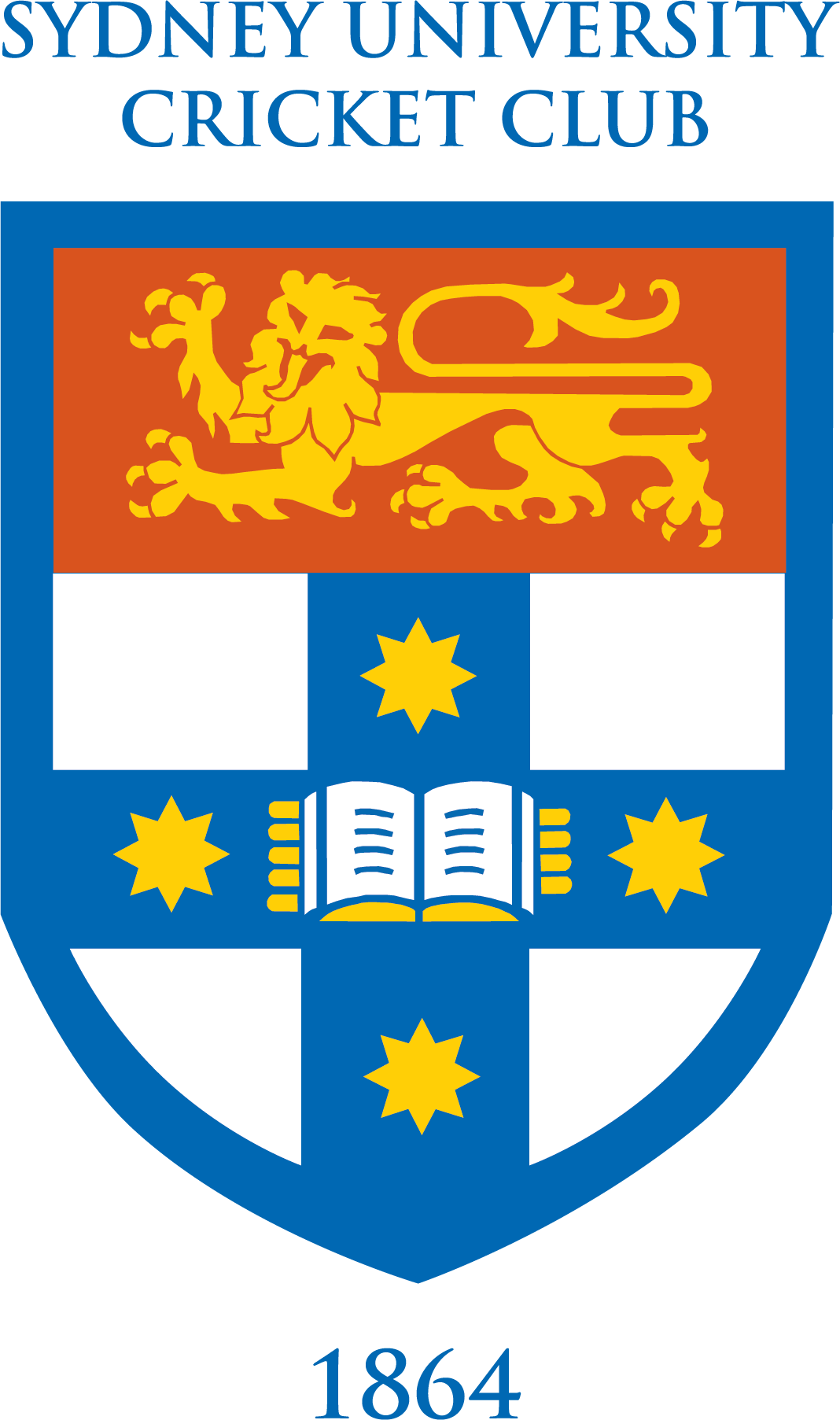Incorporation of Sydney University Cricket Club
At the Annual General Meeting on 3 August 2023, the members of the Sydney University Cricket Club will be asked to vote on the following resolution:
That, by special resolution:
1 There shall be an entity incorporated under the Associations Incorporation Act (NSW) 2009, named Sydney University Cricket Club Incorporated (the “Incorporated Club”);
2 The Constitution of the Incorporated Club shall be in the form of the draft constitution accompanying the notice of this meeting;
3 The unincorporated association currently known as the Sydney University Cricket Club (the “Unincorporated Club”) shall be dissolved; and
4 All assets and liabilities of the Unincorporated Club shall, upon its dissolution, be transferred to, and assumed by, the Incorporated Club.
Explanatory note
This note explains the reasons why this resolution is being put to the Annual General Meeting.
Along with all other University of Sydney clubs, SUCC has received the consent and approval from Sydney University Sport and Fitness (SUSF) to convert from an unincorporated association, to an incorporated association pursuant to the Associations Incorporation Act 2009 (NSW). The change in structure will mean that SUCC will become a separate legal entity, and not merely a collection of individuals.
At the Annual General Meeting of the Sydney University Cricket Club, a motion will be put to incorporate the club and adopt a new constitution. The Club’s Board recommends that members vote in favour of the motion. This memorandum sets out the reasons for this change and explains aspects of the new constitution.
The proposed new constitution has been reviewed and consented to by SUSF and Cricket NSW, is a best practice model constitution, and complies in all respects with the Associations Incorporation Act 2009 (NSW).
Reasons for incorporation
A summary of the benefits and disadvantages becoming an incorporated association, or remaining as an unincorporated association
The basic difference between an unincorporated and an incorporated association is that the law does not regard an unincorporated association as having any separate legal identity. Legally, an unincorporated association is no more than a group of individuals who have rights and obligations as between themselves, which are determined by the rules that they agree to be bound by.
The main benefits of incorporation are:
Benefit
Description
Limitation of liability and separate legal personality
An unincorporated association cannot be sued as an entity in itself, which means the members of the club can be held as personally liable.
An incorporated association is a separate legal entity which is capable of being sued. The members of an incorporated club are not individually liable for wrongs done by the club (however committee/Board Members and officers of the club may still be exposed to personal liability in circumstances where they are involved in serious breaches of their duties to the club, such as dishonestly gaining personal advantage).
The material risk is therefore shifted from the committee members and representatives of the club to a corporate vehicle.
Ability to hold property
An incorporated association can own property. Its position in this regard is like a company or an individual. Persons wishing to give property to the incorporated association simply transfer the property to it and the incorporated association becomes the owner of the property. The members of the incorporated association do not have any interest in that property.
Because unincorporated associations have no legal personality, they cannot own property. This means the club’s property is either owned by the members jointly or is held on trust. Both these methods create various practical and legal difficulties.
Ability to enter into contracts
Incorporated associations can enter into and enforce contracts in their own name. Unincorporated associations cannot. If the members of an unincorporated association wish to enter into or be bound by a contract it is necessary for them do so through an individual or individuals. This creates numerous difficulties.
For example, it is sometimes the case that a contract on behalf of a club will be entered into by a member of its committee of management. If the member wishes to leave the club, the contract will have to be novated or a new contract entered into. The counterparty may not agree to this. Further, it will be necessary to satisfy the counterparty that the contract will bind the members of the club in a meaningful way.
SUSF Affiliation Agreement
Whereas, an affiliation agreement entered into by an incorporated club would be managed by the board of that club as it was constituted from time to time. Changes in the composition of that board would not affect the existence of, rights or obligations under that agreement.
Ability to receive grants
Most government sports and infrastructure grants require applicants to be incorporated entities.
Whilst the Board holds the belief that the advantages of incorporation outweigh the disadvantages, it is important to highlight what the disadvantages may be. The main disadvantages of incorporation are set out in the table below.
Disadvantage
Description
Office holder obligations
Committee/Board members and officers of an incorporated club are subject to equitable and common law fiduciary duties, including a duty to act in good faith and in the best interests of the club and to act for a proper purpose. If office holders breach these duties they may be subject to civil and criminal penalties. This obviously can also be seen as a benefit.
Whilst this is expressed to be a disadvantage, it is almost certainly the case that officeholders of an unincorporated association owe certain duties to members, and in some cases these duties may be more onerous than they would be if they were those of an officer of an incorporated club. However these duties in an unincorporated context are less clearly defined, and would be much more dependent on the facts of a specific situation.
Costs
Incorporation requires payment of registration fees, ongoing annual fees and compliance costs that are greater than the compliance costs for unincorporated associations.
Financial reporting requirements
An incorporated association must prepare annual financial statements and reports, which may require independent auditing depending on the size of the association. These reporting obligations are more onerous than those of an unincorporated association, and will be subject to the associated costs for preparation and lodgement of the financial reports. This obviously can also be seen as a benefit.
It is the Board’s opinion that the benefits of incorporation significantly outweigh the disadvantages.
The proposed new constitution
The purpose and effect of the provisions of the proposed new constitution are set out in the table below.
Paragraph
Subject
Comment
1
Name of the club
No change from the current constitution.
2
Definitions
3
Objects of the Club
No material change
4
Powers of the club
The only material change is that the Club is to have the powers of an incorporated entity.
5
Affiliation Agreement
This change is required to reflect the SUSF requirement that clubs enter into Affiliation Agreements with SUSF.
6
Membership
The categories of member reflect the requirements of the SUSF Affiliation Agreement.
7
Application for Membership
This paragraph expands upon the provisions of paragraph 4 of the current Constitution, to reflect SUSF requirements and the requirements for incorporated entities.
8
Register of Members
This reflects the requirements for incorporated associations.
9
Effect of membership
This provision clarifies the relationship between the club and its members, and the rights of members.
10
Discontinuance of membership
This provision sets out the circumstances in which a person ceases to be a member of the club.
11
Discipline
This provision is substantially similar to paragraph 64 of the current Constitution.
12
Subscription and fees
This provision is substantially similar to paragraph 4 of the current Constitution.
13
Transitional provisions
This clause provides for the smooth transition for the club, from an unincorporated association to an incorporated entity. Essentially it provides that office-bearers, Vice-Presidents and Life Members of the unincorporated club will hold the same positions when the new entity is created.
14
Powers of the Board
This provision is substantially similar to paragraph 35 of the current Constitution.
15
Composition of the Board
This provision is substantially similar to paragraph 10 of the current Constitution.
16
Elected Board Members
This provision is substantially similar to paragraphs 12 and 13 of the current Constitution.
17
Appointed Board Members
This is a new provision which clarifies the qualifications sought in appointed Board members, and the term for which they may be appointed.
18
Vacancies on the Board
This provision is substantially similar to paragraph 32 of the current Constitution.
19
Meetings of the Board
This provision is substantially similar to paragraphs 24 to 29 of the current Constitution. It includes a new provision allowing the Board to meet remotely using a form of technology approved by the Board.
20
Delegations
This is a new provision which empowers the Board to delegate specific duties to individuals or sub-committees.
21
SUSF Approval
This provision gives effect to the SUSF Affiliation Agreement and sets out the matters which the Club may not undertake without approval of SUSF.
22
Seal, colours and crest
This is a new provision, enabling the club to utilise a corporate seal, and clarifying the colours and crest of the Club.
23
Annual General Meeting
This provision is substantially similar to paragraph 13 of the current Constitution.
24
Special General Meetings
This provision is substantially similar to paragraph 14 of the current Constitution.
25
Notice of General Meeting
This provision is substantially similar to paragraph 16 of the current Constitution, except that the time for notice is increased from 14 days to 21 days.
26
Business
This is a new provision, which clarifies the business that may be transacted at a general meeting.
27
Notices of Motion
This is a new provision, enabling members entitled to vote to submit notices of motion prior to a general meeting.
28
Procedures at General Meetings
This provision is substantially similar to paragraphs 18 to 22 of the current Constitution.
29
Voting at General Meeting
This provision is substantially similar to paragraphs 20 to 22 of the current Constitution.
30
Grievance procedure
This is a new provision, providing a mechanism for the resolution of grievances within the Club.
31
Funds
This is a new provision, clarifying the manner in which Club funds are to be raised and handled.
32
Records and Accounts
This is a new provision, establishing clear guidance on record-keeping for the Club.
33
Auditor
This provision now reflects the statutory requirements for an incorporated entity.
34
Financial year
This provision identifies the Club’s financial year.
35
Income
This provision further clarifies the manner in which, and purposes for which, the Club’s income may be used.
36
Winding Up
This provision explains the effect of a winding up of the Club.
37
Distribution of property on winding up
This provision explains that, if there is a surplus of assets following a winding up of the Club, that property shall be transferred to SUSF.
38
Alteration of Constitution
This clause provides for the means by which the Constitution may be altered.
39
Regulations
This clause empowers the Board to create Regulations binding on members of the Club (in the same way as the present club has by-laws).
40
Status and Compliance of the Club
This is a new provision, which acknowledges the Club’s relationships with other sporting bodies.
41
Notice
This provision explains how notices are to be provided by the Club.
42
Indemnity
This clause provides that Board members are to be indemnified by the Club for their actions carried out in their capacity as Board members, except where there has been wilful misconduct, gross negligence or fraud.
43
Reserve powers
This provision is required by SUSF and empowers SUSF to investigate alleged impropriety within the Club.
44
Patrons
This provision empowers the Board to invite individuals to serve as Patron of the Club.










